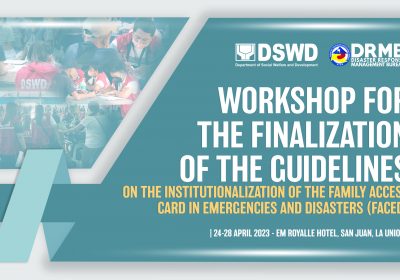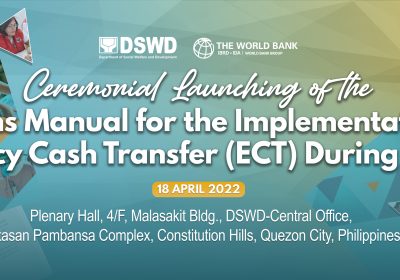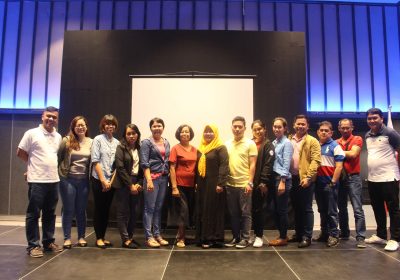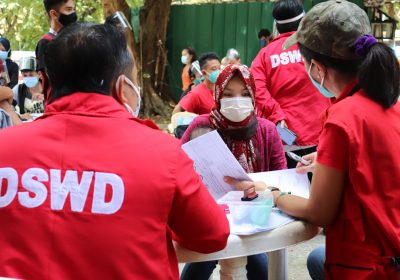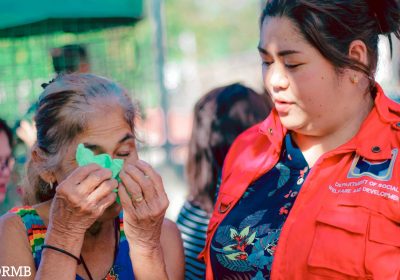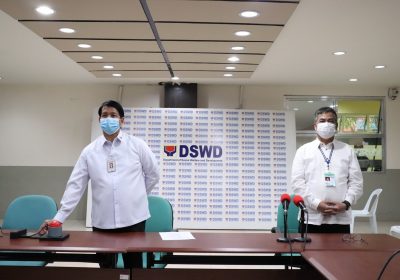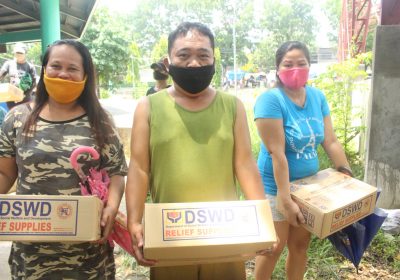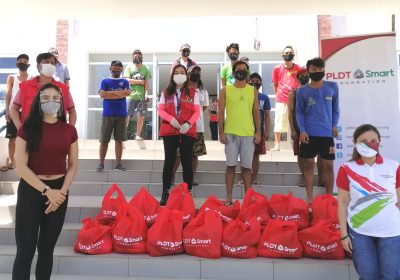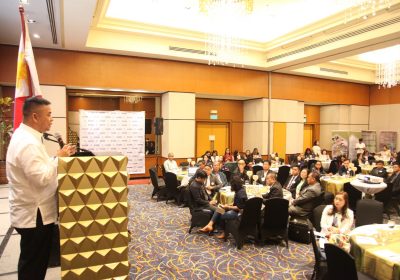As member of the Cabinet Cluster for CCAM-DDR, The Department of Social Welfare and Development (DSWD) partnered with Climate Change Commission for the 3rd National Convention on Climate Change Adaptation and Disaster Risk Reduction on November 19 to 21, 2019 in One Esplanade, Pasay City.
With the theme “Adapting Now for a Resilient Future,” the Convention was part of the observance of the Global Warming and Climate Change Consciousness Week, as mandated by Presidential Proclamation No. 1667, Series of 2008.
The Department is continuously strengthening its climate change adaptation and mitigation strategies through the Risk Resiliency Program (RRP) under the DSWD Disaster Response Management Bureau (DRMB).
According to DSWD Regional Director of the Cordillera Administrative Region Mr. Leo Quintilla in his presentation, “It makes us proud to see that no disaster can make us sink because we are resilient enough to float together. We hope that this gathering of climate change and DRR experts, advocates, implementers will be an inspiration to all, and a call to action to public and private sector. Together, we can heed the call to respond to this worsening phenomenon.”
The Convention fostered engagement between the public and private sector, cities, municipalities, civil society, and members of the academe with the common goal of addressing climate change. It also paved way for a collaborative multi-stakeholder platform for knowledge exchange on climate action, challenges, and innovations to pave the way for increased national and community resilience.
In her opening remarks, Deputy Speaker Loren Legarda posed a call to action saying, “The latest climate science has repeatedly articulated the worst case and best case scenarios for communities, for governments, for citizens as we confront the adverse impacts of climate change. We have reached the point of no return. It’s either we decide to act to survive, or we stagnate to perish.”
As continuous response, The Risk Resiliency Programs shall encourage community participation to improve the adaptive capability of economically-vulnerable communities against natural hazards and climate-induced disasters.
Above all, the Department recognizes that building climate-resilient communities is more than just adapting to the impacts of climate change, but also allowing people to meaningfully participate in developing policies and programs that aim to proactively respond to the increasing threats of this global phenomenon.
-
DSWD DRMB conducts Workshop on Family Access Card in Emergencies and Disaste...
On [...]
Read More -
Ceremonial Launch of the Operations Manual for the Emergency Cash Transfer During Disaste...
The [...]
Read More -
DSWD to launch operations manual for emergency cash transfer during disaste...
The [...]
Read More -
3rd National Convention on Climate Change and DRR [19-21 Nov 202...
As [...]
Read More -
Hatid Tulong Part 3 for Locally Stranded Individuals due to COVID [19 Oct 202...
The [...]
Read More -
DSWD Relief Distribution for Taal Volcano Eruption Operations [14 Feb 202...
DSWD [...]
Read More -
3rd Quarter Nationwide Simultaneous Earthquake Drill [10 Sept 202...
DSWD [...]
Read More -
DSWD Relief Distribution of Family Food Packs (FFPs) in Rizal [04 June 202...
DSWD [...]
Read More -
DSWD-PLDT Smart Relief Distribution [02 June 202...
DSWD [...]
Read More -
CCAM Partnership Forum [10 Oct 201...
Partnership [...]
Read More
